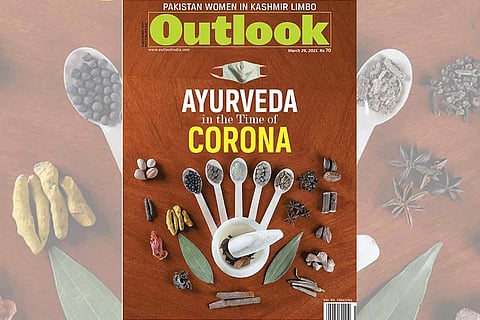India is a privileged country with cultural and spiritual diversity, empowered with multiple alternatives and optimisations for each need. In healthcare too, India is blessed with traditional and natural systems of medicine. However, modern medicine, powered by science, has progressed much ahead of these systems. The seemingly mystic procedures in Ayurveda and other Indian systems remain less understood and studied, resulting in their suboptimal utilisation. A few factors hamper the task of integrating them in a rational, transparent manner that would benefit society and do justice to their hidden richness. One is the unregulated ease with which they mix modern pharmacopoeia and methods into their practice and adopt the modern title of ‘doctor’ to denote themselves—losing the purity and uniqueness of these systems. This is enabled by a bunch of other factors. The lack of control and regulation of Ayurvedic and other Indian pharmacopoeial formulary; the scarcity of much-revered herbal plants (often kept ‘forbidden’ and promoted as secret medicine for selfish interests by the treasured figure of the vaidya); the self-centred, monopolistic corporates that make exaggerated and tall claims; the jack-of-all-trades approach adopted by some traditional physicians and pharma manufacturers—all this has kept India from developing its systems in a way where they could be truly customised to community needs. Indian medicine becoming not a choice committed to healthcare but a chance for people to use is a travesty.
Let’s Stop Promoting Mixopathy
Let us strengthen our good old systems from the ground up rather than trying to decorate the top with techniques from modern medicine, says Dr J A Jayalal, president of the Indian Medical Association
ALSO READ: Ayurveda The Alter Native?
India has 414 Ayurveda colleges versus 536 colleges for modern medicine, but a study submitted in Parliament shows over 90% of Indians rely on allopathy. We have nearly 7.5 lakh Ayurveda graduates, but only a small percentage of them are committed to pure Ayurvedic practice, dedicating their time to research and allowing the system to progress in a manner aligned with evidence-based science, even if many of them freely tout those words in advertisements. Setting a low benchmark for earning the title of ‘doctor’—as evidenced by the easy MSR (minimum standard requirement) for starting an Ayurveda college—also hampers progression to specialisations in the curricula, with no textbooks aligned to the modern understanding of disease being created.
At a time of acute crisis brought on by the pandemic, when the government is keen to promote the goodness of Indian systems, what we see is that instead of working hard to contribute with solid scientific evidence, Indian systems resorted to good old rhetoric—making tall, unexamined claims about immunity boosting—and corporate players, contentiously supported by the health ministry, sought to hijack the potential market. By contrast, modern medicine faced the brunt of the battle against the pandemic—plunging into extensive research, adopting emerging knowledge, all the while firefighting in an altruistic way, losing 760 of its doctors on the frontline. They also played a crucial role in developing an Indian vaccine—scientifically proven, approved and accepted by the world. Thus, the tasks of overall prevention, therapeutic control and post-Covid rehabilitation were successfully studied, conceptualised and implemented by modern medicine. On the other hand, we witnessed ‘Indian medicine’ (and the health minister) choose to promote a ‘wonder drug’ for Covid prevention, cure and for handling its deceptive complications—with a pilot study done on 45 asymptomatic people being brandished as scientific proof. It’s not difficult to see how this lowers the great potential of our traditional systems of medicine.

I truly wish and hope, in this time of uncertainty, that traditional medicine actually does serious brainstorming on the treasures gleaned from ancient texts, pool their inputs, do acceptable scientific analysis and bring forth novel, cost-effective and community-oriented options. Let us strengthen our good old systems from the ground up rather than trying to prune and decorate the top with techniques adopted from modern medicine and boast that we are also doing surgeries. We need to wake up, restore and advance pure practices, bringing them to a contemporary light, and not promote mixopathy.
(Views expressed are personal.)
The author is president of the Indian Medical Association